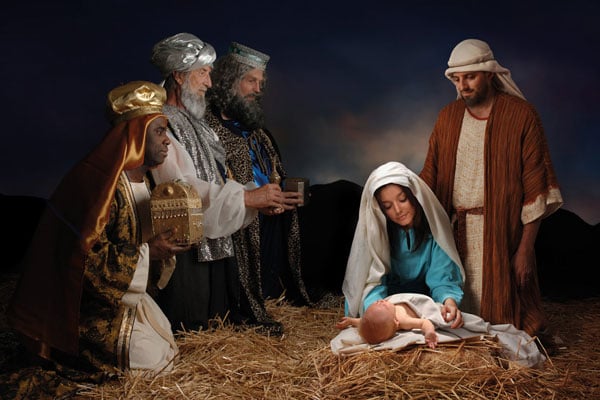Prime
God raises his worshipers

Three wise men visit Baby Jesus. PHOTO/NET
What you need to know:
- A king is born. It is very remarkable that the three kings came following a special star, which was later identified as the Star of Bethlehem or the Star of the King of the Jews.
- The star in this context, it stands for Jesus, the light of the world, as Msgr John Wynand Katende.
The great feasts of Christmas and Easter, go a long way to define Christianity. Only God, through His Church, can, actually, give a full explanation to them for our spiritual nourishment and practice (2 Peter 1:20).
The King is born
Matthew 2:1-12 reports the birth of a divine King, who was visited by 3 earthly kings from the East, guided by a special star. They pay homage with gifts, and return home more fulfilled.
King Herod, on the other hand, does the opposite. He becomes politically suspicious of the new-born King, and decides to destroy him. In the process, the power-hungry tyrant massacres several innocent male children.
But the divine child is saved when his parents take him to Egypt.
The three kings
Matthew’s identification of the three kings has been linked to Isaiah 60:1–6, which refers to “kings coming to the brightness of your dawn” bearing “gold and frankincense”. Psalm 72:11 invites all kings to pay homage to the divine King.
It is remarkable that the three kings came following a special star, which was later identified as the Star of Bethlehem or the Star of the King of the Jews. This description goes beyond the science of astrology. In this context, it stands for Jesus, the light of the world. The new-born King has come to dispel the pagan forces of darkness.
According to St John Chrysostom, the Magi worshiped Jesus as God, on the inspiration by the Holy Spirit.
The magi are commonly known as: Melchior, Gaspar and Balthasar. Balthasar is often represented as a king of Arabia or sometimes Ethiopia, Melchior as a king of Persia, and Gaspar as a king of India. Church tradition regards them as saints and a model of the homage every earthly ruler ought to make to the Divine King. On return from Egypt, after the death of Herod, the divine King is hidden in a small village called Nazareth, until the age of 30.
But within three years of his public ministry, the divine King was finally arrested and killed, under Pontius Pilate, then governor of the Roman Emperor. Three days later, however, Jesus rose, and now lives for ever.
Pagan to liberation
Even then, for over 300 years, Roman Emperors persistently extinguish the light of Christianity, but all in vain. On realising this error, Emperor Constantine, with the edict of Milan in 313, declared Christianity the official/state religion of the Empire. The city of Rome is identified with the Seat of the Catholic Church.
Under Christianity, the Roman Empire changed from being an instrument of pagan ideas and tyranny, into an instrument of liberation of peoples. By this time, Romans considered their emperor a god. But the Christian belief in one God, who was not the emperor, changed all.
Christianity gained adherents among both Jews and gentiles/pagans, bringing them together with a message of unity before God. Christianity was appealing to the people of the Roman Empire because it offered a personal relationship with God and a way to eternal life (John 4:24).
Today, Christianity is the most widely practiced religion in the world, with 2.4 billion followers (one-third of the global population). The US has the largest Christian population in the world.
The founding fathers signed the Declaration of Independence, in response to the call of the Gospel upon their lives. “In God we trust” is the national motto.
In Uganda
Uganda subscribes to the reign of God. In 1877, King Muteesa I of Buganda invited the light of the gospel. Kabaka Mwanga attempted to extinguish the light, but failed miserably.
Many converts died for the cause of Christian faith. In 1962, independent Uganda adopted the national motto: “For God and my country”, and a national anthem, reflecting gospel values.
Pope Paul VI named us a model nation in Africa. The prophetic voice of religious leaders is needed to help us realise liberty, well-ordered discipline, social justice, peace and harmony (2 Timothy 4:2).”
Did you know?
Today, Christianity is the most widely practiced religion in the world, with 2.4 billion followers (one-third of the global population). The US has the largest Christian population in the world.





